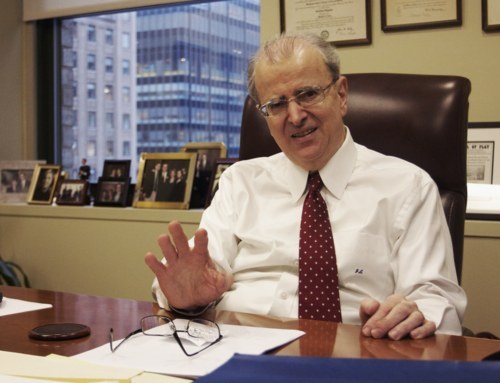“Inertia” is why New York is one of the last states in America where 16-year-olds can still be sent to prison for minor offenses, according to New York State’s top judge, Jonathan Lippman. Judge Lippman announced last week he wants overhaul the juvenile justice system, proposing that 16- and 17-year-olds arrested for less serious crimes be tried in the family court system rather than treated as adults in criminal court.
The reasons Lippman gave were practical: the family court system has access to social services and rehabilitation, and it’s a friendlier, more understanding system, which is less likely to inspire recidivism. The goal is to keep kids out of jail if possible, to avoid turning them into career criminals. Besides, everyone else is doing it – why aren’t we?
Fewer young people are locked up today than ten years ago. New York has gone from having 2,200 young people behind bars to 700, a two-thirds reduction. Following up on promises made by his predecessors, Governor Andrew Cuomo has closed several of the expensive and dysfunctional facilities.

But Judge Lippman says the system is broken and children continue to suffer unnecessarily in New York.
“It’s a no-brainer,” he said in an interview with The New York World. “I think everyone has known for a long time that this is not the way to treat our future.”
Lippman announced the proposed changes at a Citizens Crime Commission breakfast at Fordham University Law School. “New York and North Carolina alone in the nation that continue to prosecute 16-year-olds as adult criminals,” he told the gathering of advocacy groups, lawyers, judges and elected representatives. “And based on recent developments in the North Carolina legislature, New York may very soon have the dubious distinction of standing alone on this issue.”
But why has it taken so long for a historically trend-setting state like New York to get up to speed on an apparently obvious and cost-cutting reform? Reform that was implemented years ago in law-and-order states like Texas?
“There has been a vacuum of leadership, a complete lack of leadership,” asserted Lippman. “If we’re concerned about the juvenile justice system, why don’t we all just stand up for it and not be afraid to speak out?”
Judge Lippman has definitely spoken out, and he has even had a verb named after him by his colleagues on the bench — to be Lippmanized: or convinced to agree with his point of view. In the two-and-a-half years he’s been in New York’s top judge, Lippman reduced unanimous decisions on the seven-judge Court of Appeals to around 60 percent, in contrast to his consensus-seeking predecessor, Judge Judith Kaye. Said Lippman, “Often the law is better off by us having the disagreements.”
Last year, he managed to secure $100 million in additional funds for civil legal services in New York. Following a hearing in Westchester in August, the Office of Court Administration handed out its first installment — 56 legal services grants worth $12.5 million, to providers around the state.
This week saw the second of four hearings on the funds, and legal advocates are eagerly watching how the next chunk of money will be distributed. Lippman expects the hearings to guide him and insists his juvenile justice changes won’t interfere with the civil courts delivering on their core responsibilities. Shifting thousands of cases a year to the family court would place a heavy burden on infrastructure, an imbalance Lippman acknowledges. He says that in the long run the burden on the public purse can be halved if teenagers aren’t treated like criminals.
During a planned test period, government agencies and bureaucrats will write up a road map and budget. Lippman believes that if everyone cooperates, he can have a program of sorts up and running by 2012. “But that requires the political will,” he said.
In the meantime a pilot program will be launched within the next few months, enabling criminal court judges to prosecute like a family court judge. This would mean that young defendants will have access to rehabilitation, counseling and support services unavailable in a straight prosecutorial procedure.
For all his positive thinking, though, Judge Lippman still has to get the plan through Governor Andrew Cuomo and the state legislature.
Judge Lippman has high expectations. “Oh, I have faith we’ll get the change we want,” he said with a cheeky grin. Albany, prepare to be Lippmanized.









